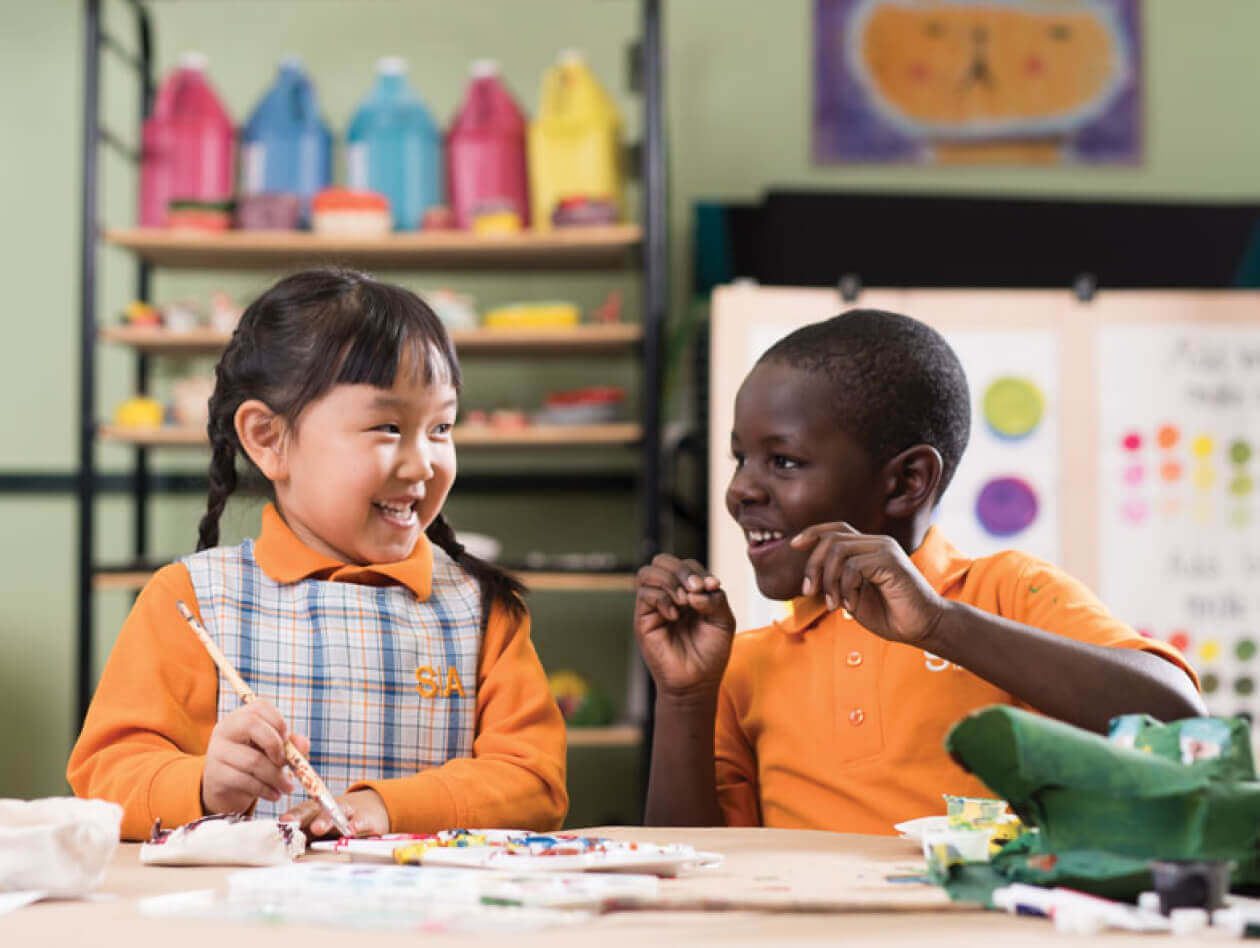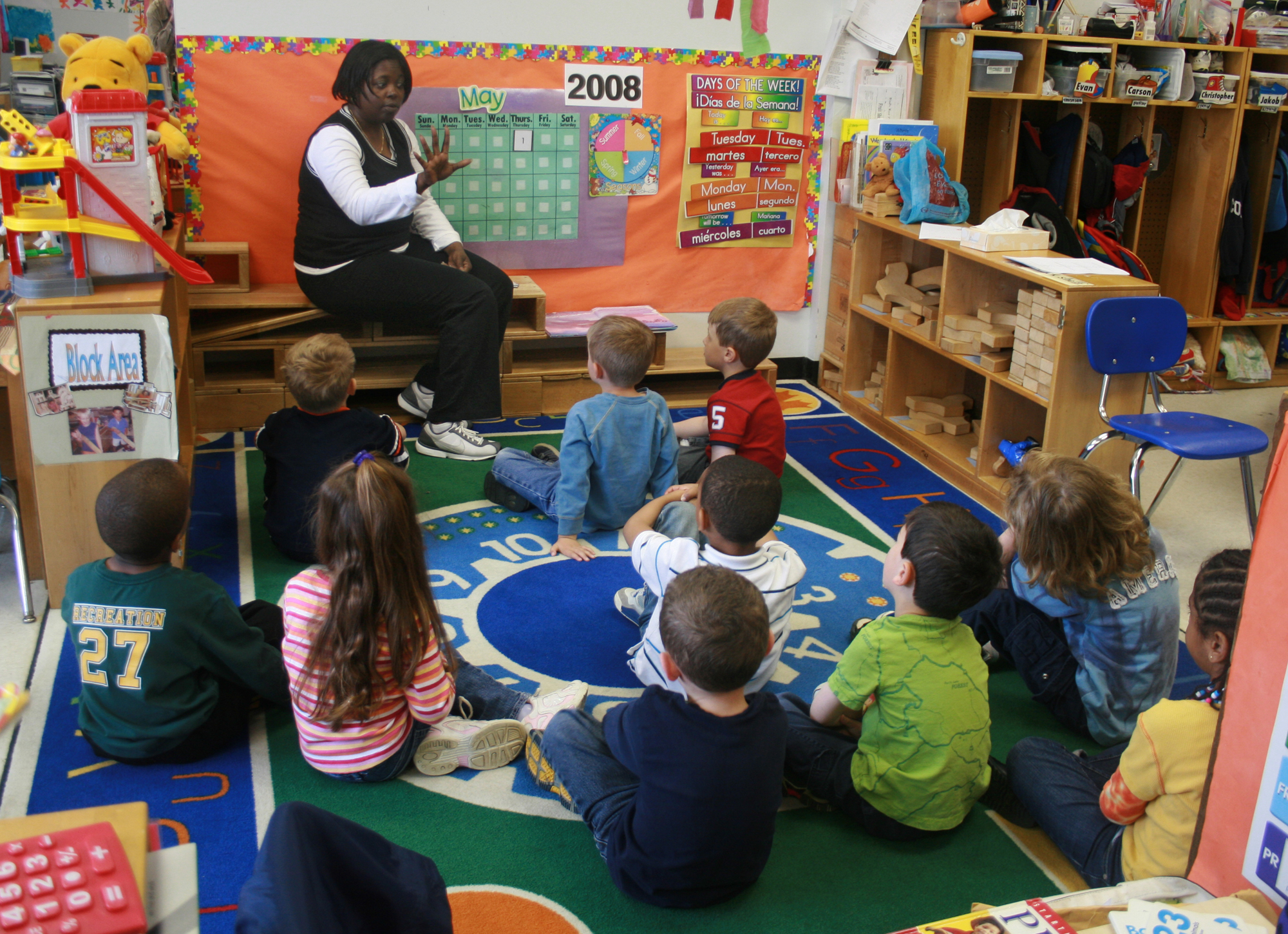Why it matters of social skills development in Kindergarten
Wiki Article
Checking out the Perks of Preschool Programs: A Comprehensive Guide to Early Education And Learning
Kindergarten programs play a pivotal duty in shaping a youngster's very early instructional experience. They provide a structured atmosphere where young students can establish essential social abilities, psychological resilience, and cognitive abilities. These foundational skills are important as children relocate into more official education. Recognizing exactly how these programs add to a child's growth discloses much concerning their long-lasting educational trajectory. What particular benefits do these early experiences supply, and exactly how do they influence a youngster's future?The Importance of Social Abilities Growth
While numerous facets of early education and learning focus on academic abilities, the growth of social skills in preschool programs is equally essential. Social abilities encompass the capacity to interact properly, collaborate with peers, and navigate social circumstances, all of which are necessary for a child's total advancement. In kindergarten, kids discover to share, take turns, and resolve disputes, promoting a sense of community and belonging. These experiences make it possible for young learners to create and develop friendships compassion, laying the groundwork for positive relationships in the future.Teachers play a crucial duty in helping with social skill development via structured activities and directed interactions. Through group jobs and play, children practice necessary skills such as paying attention, working out, and understanding diverse point of views. These interactions help children construct self-confidence and self-worth, critical elements for their personal and academic journeys. Generally, nurturing social abilities in kindergarten enriches kids's experiences and prepares them for the complexities of social life past college.

Building Psychological Strength in Young Learners
Structure emotional resilience in young students is essential to their overall well-being and success in different aspects of life. Kindergarten programs offer a structured setting where youngsters can learn to navigate their emotions properly. Through guided communications and tasks, instructors help kids recognize and express their feelings, cultivating a feeling of self-awareness.These programs frequently consist of approaches for dealing with obstacles, such as analytical tasks and role-playing circumstances that prepare kids for real-life scenarios. By encouraging cooperation and empathy, young learners establish solid social links, which are important for psychological assistance.
Educators play an essential function in modeling strength by demonstrating how to handle stress and anxiety and adversity. As children observe these habits, they internalize beneficial coping devices, outfitting them to take care of future psychological difficulties with greater ease. Overall, nurturing psychological strength in very early education and learning lays a solid foundation for lifelong mental wellness and versatility.
Enhancing Cognitive Capacities Via Structured Understanding
As youngsters involve in organized understanding experiences within preschool programs, their cognitive capabilities are significantly enhanced. These programs introduce age-appropriate activities that stimulate vital thinking and analytic abilities. For example, hands-on activities such as challenges and foundation promote spatial awareness and sensible reasoning.Additionally, interactive storytelling and team discussions foster language development, expanding vocabulary and comprehension. Via organized regimens, youngsters find out to adhere to directions, improving their executive working skills, which are vital for future scholastic success.
Social communications within these programs likewise play a considerable duty, as youngsters discover to work together and connect successfully, further enhancing cognitive growth.
In addition, incorporating play-based knowing allows kids to discover concepts in a fun and interesting method, enhancing their understanding and retention of understanding. On the whole, structured understanding in kindergarten lays a solid structure for cognitive advancement, preparing youngsters for the challenges of greater education.
Cultivating a Love for Lifelong Knowing

In addition, favorable interactions with peers and instructors contribute to a setting where learning is watched as satisfying and rewarding. This supportive environment helps infuse intrinsic motivation and strengthens the idea that education and learning is a continual journey rather than a location.
As youngsters find their interests and toughness, they are a lot more likely to pursue expertise beyond the class, laying the foundation for a lifelong dedication to discovering. Ultimately, preschool programs play an important duty in forming enthusiastic students who embrace instructional opportunities throughout their lives.
Getting Ready For Future Academic Success
While foundational skills are vital for very early learners, preschool programs likewise play a critical function in preparing kids for future scholastic success. These programs introduce necessary concepts such as literacy and numeracy, assuring important source that children develop the cognitive capacities required for more advanced knowing. By involving in organized activities, pupils improve essential thinking and analytical skills, laying a strong foundation for their educational trip.Preschool fosters social-emotional advancement, enabling kids to browse joint jobs and build relationships with peers. This collective environment infuses a feeling of belonging and boosts self-confidence, which is important for scholastic determination.
Furthermore, direct exposure to diverse knowing experiences in preschool grows adaptability, furnishing youngsters to take on various subjects and difficulties in succeeding qualities (Grade School Peoria). Ultimately, by offering a versatile early education, kindergarten programs ensure that kids are not only ready for first grade but also prepared for ongoing academic accomplishment throughout their academic jobs
Frequently Asked Concerns
What Age Is Perfect for Beginning Kindergarten Programs?
The optimal age for starting preschool programs is normally in between 5 and 6 years of ages. This age allows youngsters to create essential social, psychological, and cognitive skills, preparing them for future academic success and personal development.Exactly how Do I Choose the Right Kindergarten Program for My Youngster?
To choose the appropriate kindergarten program, one must consider variables such as curriculum, educator certifications, class dimension, area, and the school's philosophy. Observing the environment and event comments from various other moms and dads can additionally be useful.Are There Any State Needs for Kindergarten Registration?
Many states have details demands for preschool registration, including age constraints and paperwork such as copyright or evidence of residency (Private School). Parents must consult their regional education and learning authority to understand the specific criteria in their areaWhat Should Parents Anticipate During a Normal Preschool Day?
During a regular kindergarten day, moms and dads can anticipate structured activities consisting of circle time, imaginative play, standard academic lessons, snack breaks, and social communication, all designed to promote discovering and development in a nurturing atmosphere.Just How Can Moms And Dads Support Understanding in the house along with Kindergarten?
Parents can support learning in the house by engaging in normal reading, including educational games, developing a consistent routine, urging inquisitiveness through questions, and developing a positive, nurturing environment that promotes exploration and imagination.Preschool programs play a pivotal duty in shaping a child's early academic experience. Kindergarten programs provide a structured environment where children can discover to navigate their feelings effectively. As youngsters involve in structured knowing experiences within preschool programs, their cognitive capabilities are significantly improved. By appealing children in varied resource activities-- such as narration, hands-on experiments, and joint jobs-- kindergarten programs cultivate interest and exploration. While foundational abilities are critical for very early learners, kindergarten programs additionally play a vital duty in preparing children for future academic success.
Report this wiki page